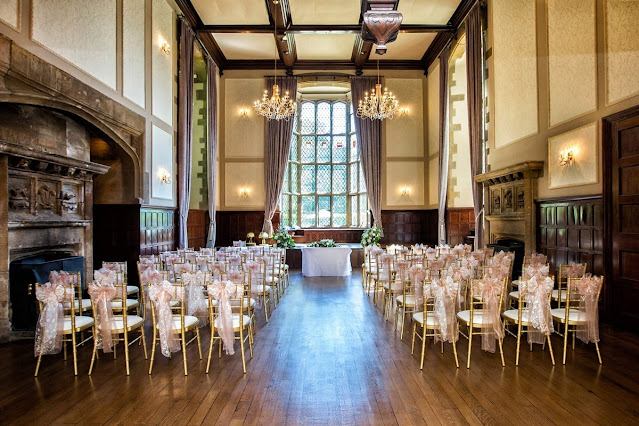Venue Hire 101: Everything You Need to Know Before Booking
Welcome to the ultimate guide for venue hire! Whether you're planning a wedding, corporate event, or any other special occasion, finding the perfect venue is crucial. In this comprehensive guide, we'll cover everything you need to know before booking a venue to ensure your event is a resounding success.
Chapter 1: Defining Your Needs
When it comes to venue hire in Melbourne, the first step is understanding your specific needs. Begin by defining the type of event you're hosting. Are you planning a wedding, a corporate conference, a product launch, or a birthday celebration? Each type of event may have varying requirements, so it's essential to have a clear vision from the outset.
Estimating the number of guests is another crucial aspect to consider. Whether you're expecting a small, intimate gathering or a large-scale event, having a rough idea of the guest count will help you narrow down your options when selecting a venue.
Furthermore, identifying specific requirements such as catering, audiovisual equipment, and any special accommodations for guests with disabilities is paramount. These details will significantly impact the type of venue you choose and the overall budget for your event.
Chapter 2: Researching Potential Venues
Once you've defined your needs, it's time to embark on the exciting journey of researching potential venues. There is a myriad of options to explore, including hotels, banquet halls, outdoor spaces, conference centres, and even unique venues like museums or art galleries. Each type of venue offers its own distinct ambience and amenities, so it's important to consider what aligns best with your event.
Utilising online resources and reading reviews from previous clients can provide valuable insights into the experiences of others who have hosted events at your shortlisted venues. Pay attention to comments about the venue's facilities, service quality, and overall atmosphere.
In addition to online research, scheduling site visits is highly recommended. Walking through the venue will give you a tangible sense of the space, allowing you to envision how your event will unfold. During these visits, asking the right questions is essential. Inquire about the availability of dates, flexibility in event setup, support for technical requirements, and any restrictions or guidelines the venue may have.
Chapter 3: Budgeting and Negotiating
Setting a realistic budget for venue hire Melbourne is a fundamental aspect of event planning. Your budget will influence the type of venue you can afford, the available amenities, and the overall experience you can provide for your guests. When establishing your budget, consider not only the venue rental cost but also any additional services or equipment you may require.
Negotiating with venue managers for favourable terms and pricing is a common practice. Many venues are open to discussions, especially if you're booking well in advance or during non-peak seasons. Be prepared to articulate your requirements and be flexible where possible to reach mutually beneficial terms.
Understanding additional costs and fees is equally important. Inquire about any hidden charges, overtime fees, corkage fees, or service charges that may impact your overall expenditure. Having a clear understanding of the complete cost breakdown will prevent any unwelcome surprises down the line.
Chapter 4: Contracts and Legal Considerations
Before finalising a venue booking, it's crucial to review contracts thoroughly. Pay close attention to clauses related to payment schedules, cancellation policies, and refund processes. Ensure that the contract clearly outlines the responsibilities of both parties, including any potential liabilities or indemnities.
Understanding the venue's cancellation policies and refund structure is vital, especially in unforeseen circumstances where event plans may need to be altered or cancelled. Knowing the implications of such scenarios will help you make informed decisions and mitigate potential financial losses.
In addition to contracts, obtaining necessary permits and insurance should not be overlooked. Depending on the type of event and the venue's location permits for serving alcohol, playing music, or hosting outdoor activities may be required. Likewise, event insurance can provide invaluable protection against unforeseen incidents.
Chapter 5: Managing Logistics
As the event date approaches, managing logistics becomes a key focus. Coordinating with vendors and suppliers, such as caterers, decorators, and technical support teams, is essential for seamless execution. Clear communication and detailed planning with these stakeholders will ensure that all aspects of your event align harmoniously.
Creating a floor plan for seating arrangements and the flow of activities is an intricate task that necessitates careful consideration. Factors such as guest comfort, visibility of presentations or performances, and accessibility should be taken into account when designing the layout.
Finalising details with the venue staff is the last crucial step in managing logistics. This includes confirming the event timeline, discussing setup requirements, and addressing any specific requests or concerns you may have. Building a strong rapport with the venue's event team can greatly contribute to the success of your event.
Conclusion
Congratulations! You're now equipped with all the essential knowledge to confidently book the perfect venue hire Melbourne for your upcoming event. Remember to take your time, do thorough research, and ask plenty of questions along the way. With these tips in mind, you're well on your way to creating an unforgettable experience for you and your guests.


.jpg)

Comments
Post a Comment